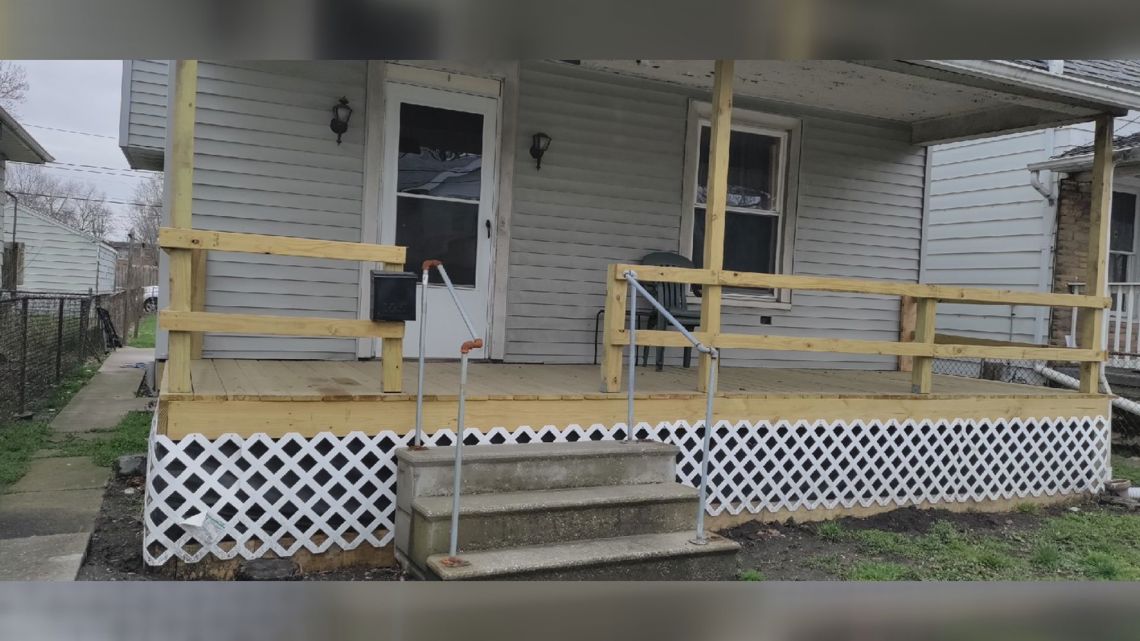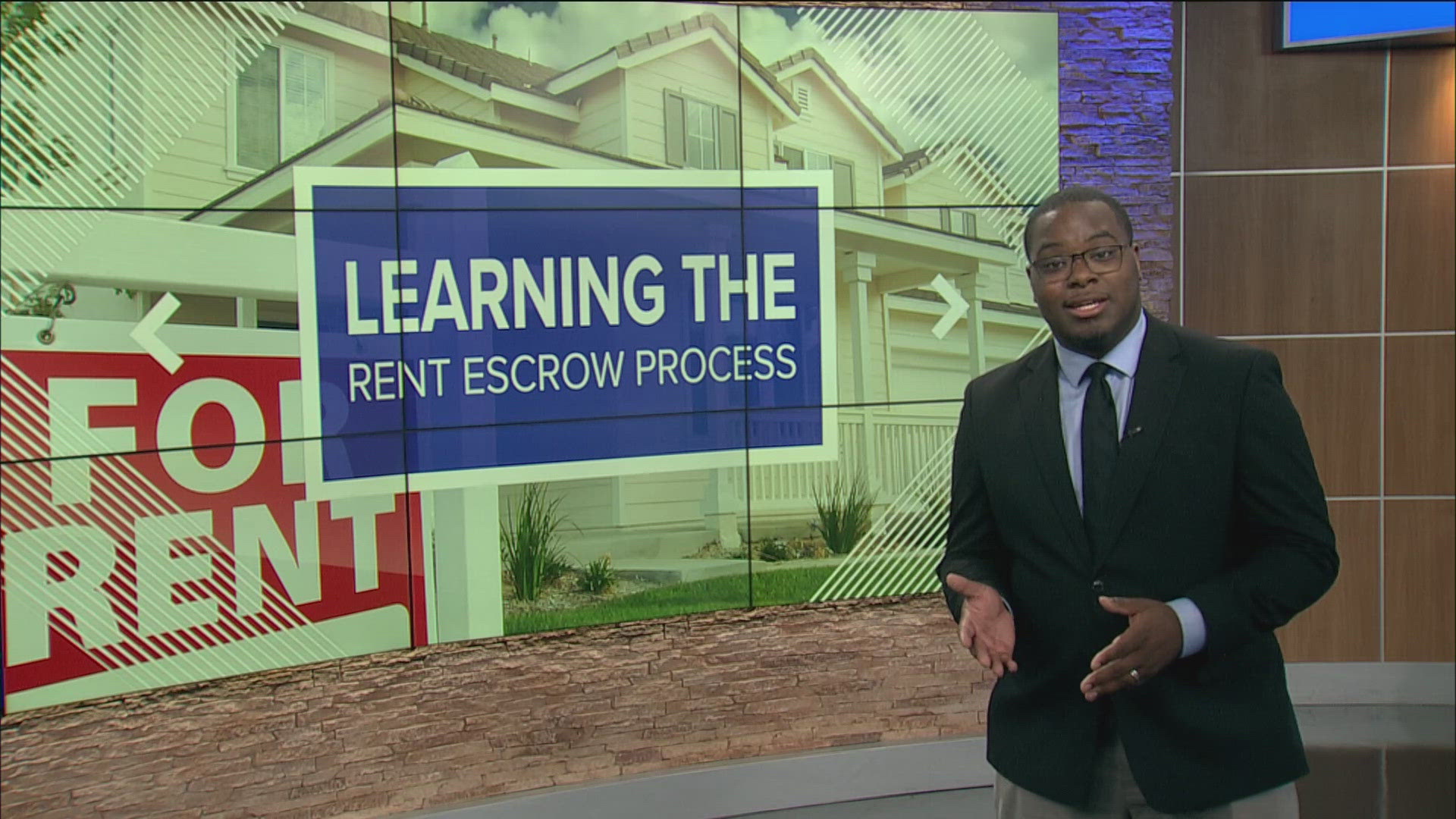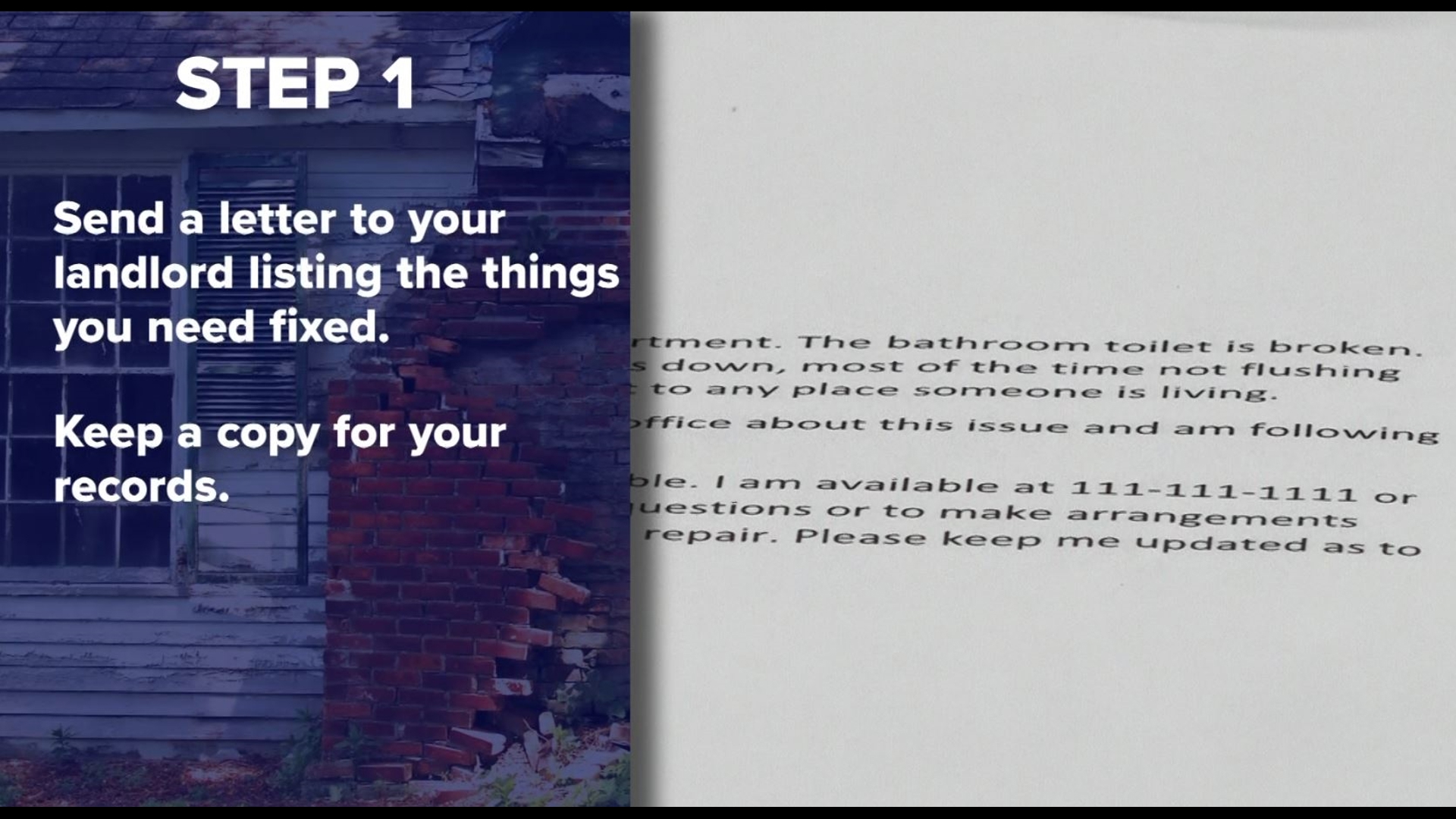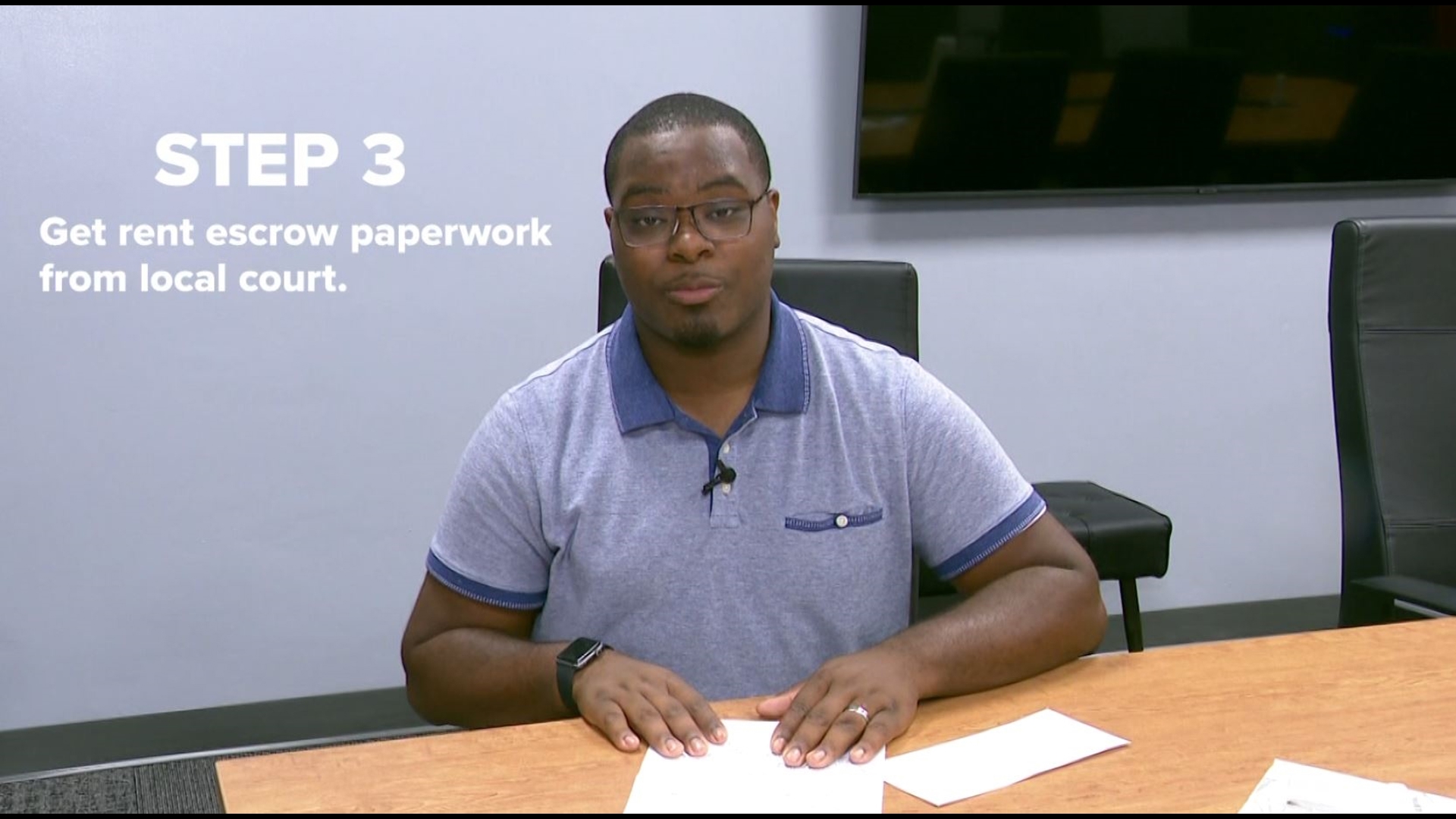Is your landlord not fixing issues? Rent escrow may help
The process involves giving your monthly rent payment to a local court instead of the property. The money stays with the court until the issue is resolved.
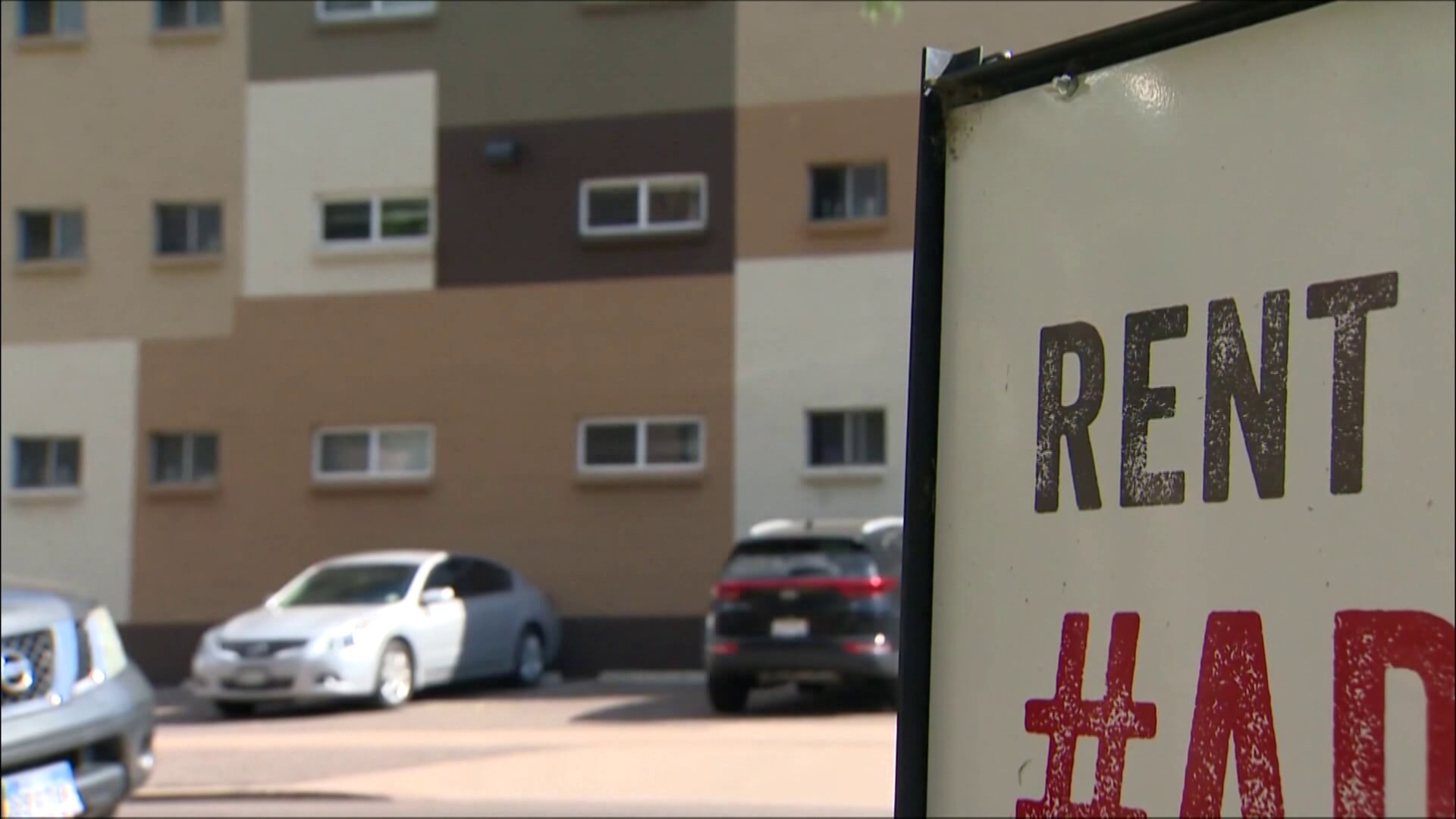
If your landlord isn't resolving issues in an appropriate or timely manner, you may wonder what other options you have.
One option is rent escrow, the act of putting monthly rent payments into an account through local courts, instead of paying the property owner. You can't get evicted for doing it, either.
"Horrifying, scary" is how Sandra Glosch describes the living conditions at her then structurally damaged north Toledo home.
RELATED: No, landlords are not banned from charging three months’ rent as a security deposit nationwide
She's been through the rent escrow process twice while living there. The first was in 2020 when she needed a leaking roof replaced; the second was to get damages to her front and back porch fixed.
"Steps were crumbling and I didn't know what to do and I called (The Fair Housing Center) and asked them if they could help me," Glosch said.
The Fair Housing Center team recommended she escrow her rent payments to push her landlord to fix the issues.
George Thomas, CEO of The Fair Housing Center said the organization in the past year has helped more than 50 others do the same.
"We've helped people file those cases and try to get money back to them," he said.
While The Fair Housing Center can help guide, escrowing rent is something the tenant must do themself.
What to know before getting started
Firstly, you need to determine if rent escrow is your best option, and that depends on what the issue is.
"Does this condition make it unfit or uninhabitable in some way or does it violate the lease agreement? Does it violate a local building code or health code?" Thomas said. "If it's falling in one of those categories, good chance you can escrow your rent for it."
Also, continue to pay your rent on time to the landlord.
Another thing to know is you should continue to pay your rent on time to the landlord during these beginning steps.
Thomas said some people might assume since they plan to go through rent escrow, they can just stop paying rent to the landlord.
"There's a process," he said. "You're going to have to be current in your rent before you start that process."
RELATED: New complaints arise from Ashland Manor residents as complex sees new management | 11 Investigates
Step 1 Send a letter to your landlord
Thomas recommends sending a letter to your landlord with a detailed list of things you need fixed. You'll also want to keep a copy of it for your records.
"If somebody comes to pick up your rent or you have a spot where you deliver your rent, that could be the place where you give the notice," he said. "It's usually the property manager you give this written notice to that says 'these are the repairs I need.'"
Step 2 Wait a reasonable amount of time

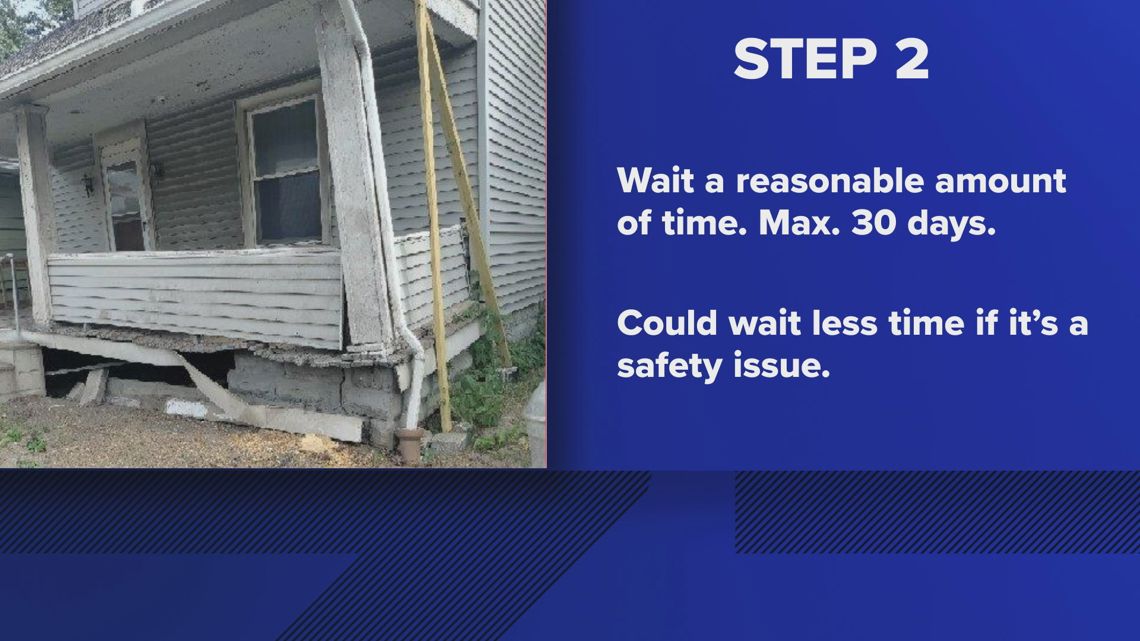
Now, it's time to see if the repairs are done within 30 days.
In Glosch's case, her porch was a safety issue that was repaired within the timeframe.
"It doesn't seem to me like you'll have to wait the full 30 days for the landlord to confirm whether or not they're going to repair it or start the repairs in some way because that's a safety issue there," she said.
Step 3 Fill out forms and turn them in to court
The final step is getting the appropriate paperwork from your local court and filing it. You can usually find them on your county municipal court's website, but some courts require these to be picked up in person.
Fill out the form and take it to the clerk's office with your month's rent payment. Filing the form is free.
"People need to be very careful to read through carefully and complete those documents carefully," Thomas cautioned.
What happens next? Your landlord may retaliate

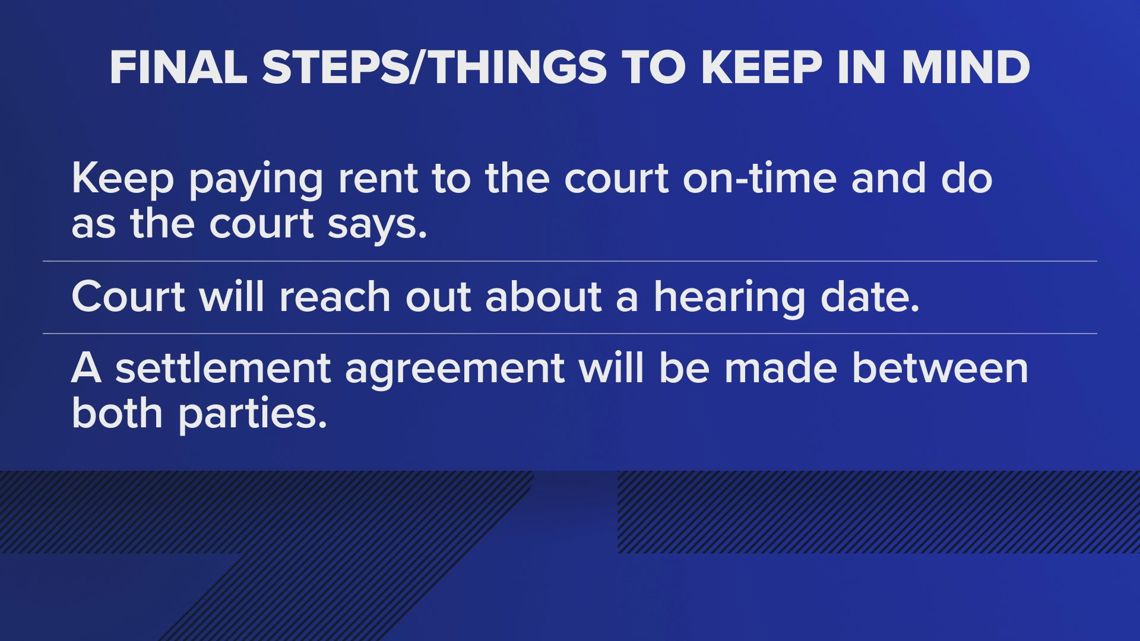
You're still paying rent, though, so ensure your payments are given to the court on time. Thomas said the court will reach out about a hearing date, where you'll present your evidence.
A settlement agreement will then need to be made between both parties. Thomas also said you could get some of your money back at the end of this.
"If the landlord fully complies, fixes everything right away, they might get all of the money," he said. "But, if the tenant had to live in really difficult conditions for a while, maybe it makes sense for the tenant to receive some of those funds as well."
RELATED: City of Toledo sees increase in applications for relaunched down payment assistance program
Glosch put more than $3,500 in rent payments into escrow and got $1,500 back from the court.
She said there were times when her landlord made some repairs before the hearing and pushed her to release the rent and drop the case.
But The Fair Housing Center said not to.
"When it's released, it's released, you're doing everything you're supposed to be doing," Glosch said she was advised.
Thomas said some clients are worried their landlord will retaliate against them by not allowing a renewal of the lease.
The Fair Housing Center's attorneys will sometimes have clients put in a lease renewal agreement as a part of the settlement agreement that's made through the court, preventing landlords from refusing a renewal.
Tenants can also put the clause in the agreement themselves.
Resolving the issues seemed daunting at first to Glosch, but she says escrowing her rent had results: her unsafe porch was fixed.

